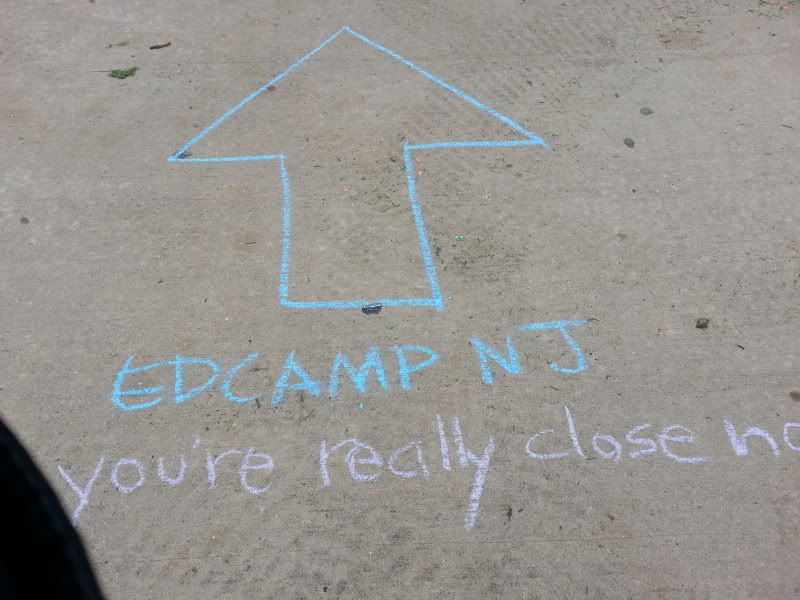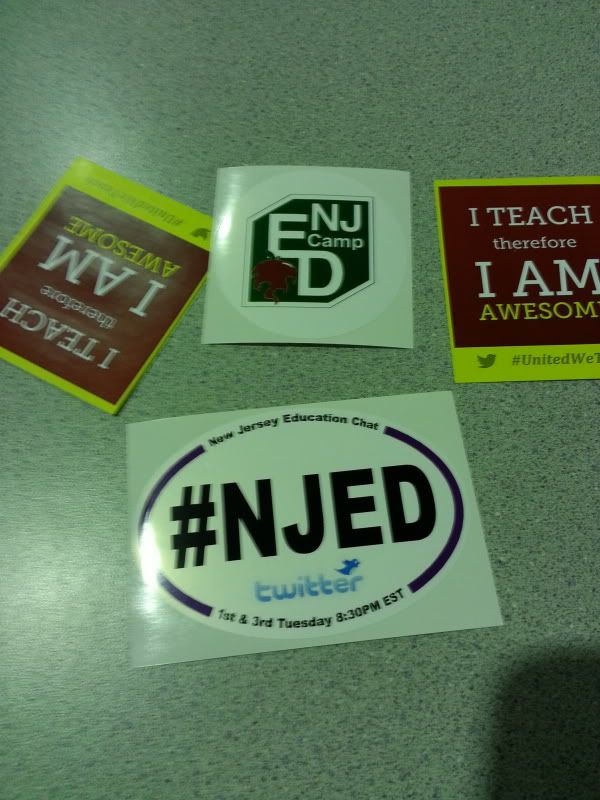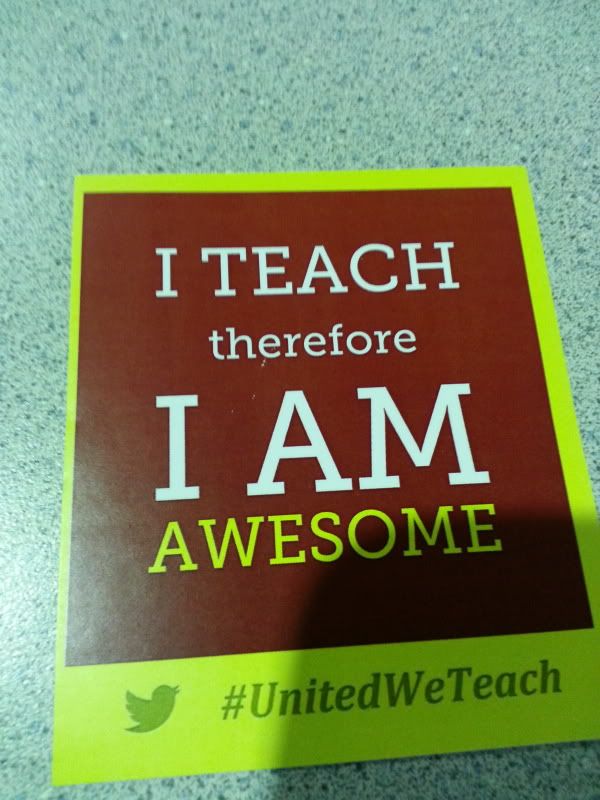So when I first heard of talk about an Edcamp coming to NJ, I was excited. I mean, come on--the chance to do all the things I mentioned above after literally rolling out of my own bed and driving for 15 minutes? Yes!
I almost wasn't able to attend after battling Jedi style with a stomach thing all day Friday; the thing ultimately claimed my five year old son and kept my husband from attending the Edcamp with me, but I was good to go on Saturday morning. I arrived early (see 15 minute commute and add in teacher's schedule with young children)

and was promptly greeted by Kevin Jarrett! A number of super cool stickers greeted me:

Of course I picked up the Awesome one for my Awesome teacher husband.

I set up shop in the Cafetorium and started chatting with some folks, including some people I had met at previous Edcamps. I was invited to be interviewed by Teachercast; I declined because who wants to hear what I have to say? It was cool to just be in the excited atmosphere of the room; clearly there were folks who are very active in this kind of movement, those who are involved in the education movement happening on Twitter and there were others to whom this whole thing was very new.
Speaking of which, one of the most popular sessions of the day was on using Storytelling in the classroom. I walked into one of these sessions late, after "voting with [my] feet" and leaving another session that wasn't meeting my needs. Traditional methods work! Elise spoke about using storytelling to develop students speaking skills, both for personal conversations and for formal presentations. It was great just listening to her speak! Here are the notes from her presentation, as shared by another attendee.
Another great presentation, which I wish I'd chosen first, was Paul Bogush's presentation on body language. Here are the notes. Again, traditional methods are effective and important.
But technology was clearly the focus of the day. Innovation was king. Folks shared methods on using tools like Edmodo, how to use Twitter to increase communication with parents, and using cell phones in the classroom.
It's so exciting to attend an Edcamp; I love seeing and speaking with people I consider "Twitter Rockstars." I love engaging in conversations with people who are like minded about education, who have innovative ideas, or reinforce the ways in which traditional methods can be applied and used for modern students. Attending an Edcamp always re-energizes me about my year, about what I'm doing in the classroom, and what's going on in classrooms across the country.
Here's all the Tweets that came over the course of the day using the #edcampnj hashtag: http://www.tweetarchivist.com/cbef8ca9/2
The Collaborative Notes can be found here
and
The Flickr Photostream can be seen here.
I got up and presented in the Smackdown for the first time, sharing a website, slaveryfootprint.org, which I'd recently discovered on Twitter. This photo documents just one reason that I don't present stuff:
 |
| Photo Credit: Kevin Jarrett via Flickr.com |
